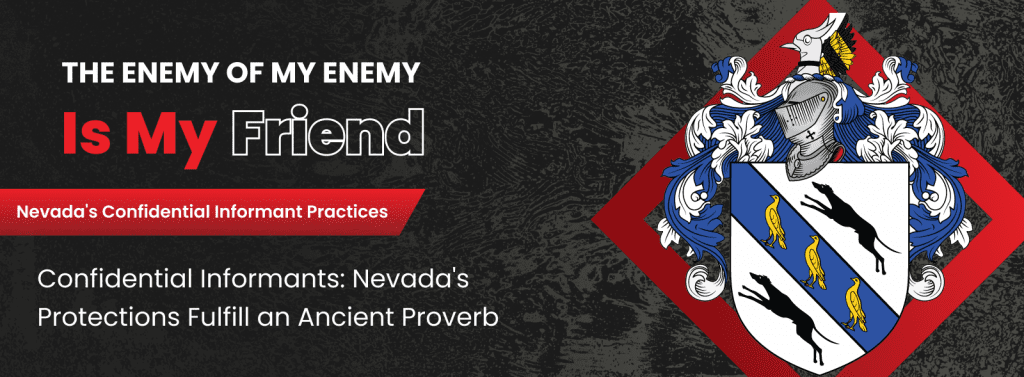
It is believed that the saying “the enemy of my enemy is my friend” made its earliest appearance in civilization around the 4th century BC, though the first recorded use of the expression appears later in the 19th century. In short, it encourages two opposing individuals to work together to defeat a common enemy, and its original use in Sanskrit was to describe military strategy. The position of a confidential informant is a modern-day example of this ancient proverb. Law enforcement often relies on these individuals and their connections within specific communities or unlawful activities to provide information that can lead to the arrests or convictions of specific criminals.
The Relationship of Informants to Nevada Law
Depending on which side of the law you find yourself, the role of an informant could either help or hurt your legal case. Prior to DNA capabilities, eyewitness testimony accounted for a majority of convictions across the United States. However, since 1989, out of 341 national DNA-based exonerations, 71% corrected eyewitness misidentification. For clients who are facing serious charges on the basis of eyewitness testimony where the informant can remain anonymous, the role of a confidential informant can be incredibly damaging.
For those who have participated in a crime and could be implicated, becoming an informant could be an opportunity to have their own criminal history negated. Working as an informant generally leads to some form of compensation, though the situation varies according to the law enforcement agency. In Nevada, the policies on eyewitness identification are laid out in NRS 171, but the specific practices are left to the individual law enforcement agencies. This can lead to broad interpretations and practices that jeopardize the innocence of some and protect the guilt of others.
The Practice in Nevada Law
Disclosure laws and the use of informants to provide evidence in a case are not without criticism in Nevada, but there are cases setting precedents for the use of informant testimony. Buckley v. State (1979) established that the jury is to receive cautionary instructions if the informant’s testimony can’t be corroborated but to be favored when the testimony can be corroborated. In D’Agostino v. State (1992), Nevada’s Supreme Court legitimized the inherent problems that are associated with the credibility of informant testimony and required that a reliability hearing must be held in specific circumstances before a jury can hear the testimony.
The Protections for a Confidential Informant
Under NRS 179, the plaintiff in a case is given the privilege of disclosure refusal for any person, except a witness, who has given information to a law enforcement officer that purported a crime was committed. Documents from any confidential law informant database are presumed to be non-public and confidential. For those who want leniency in their own situation, this can make it convenient to become an informant. There is also police protection in place to keep their identity from being revealed, potentially protecting a lifestyle or family members from retaliation for the betrayal. For law enforcement, an arrangement with a confidential informant is a means to an end.
Help for Your Case
With the Law Firm of C. Ben Scroggins, Chtd, you have experienced legal representation fighting on your behalf. We know Nevada law, and we are committed to challenging the accusations of criminal conduct to receive a favorable trial outcome. Schedule a consultation today.

